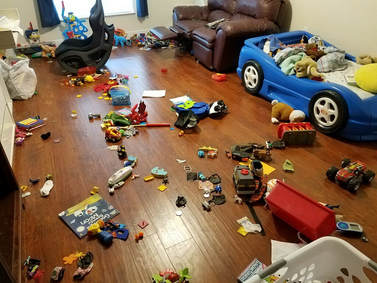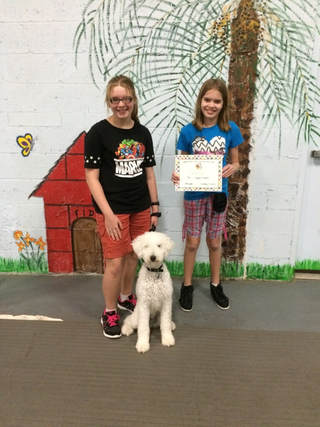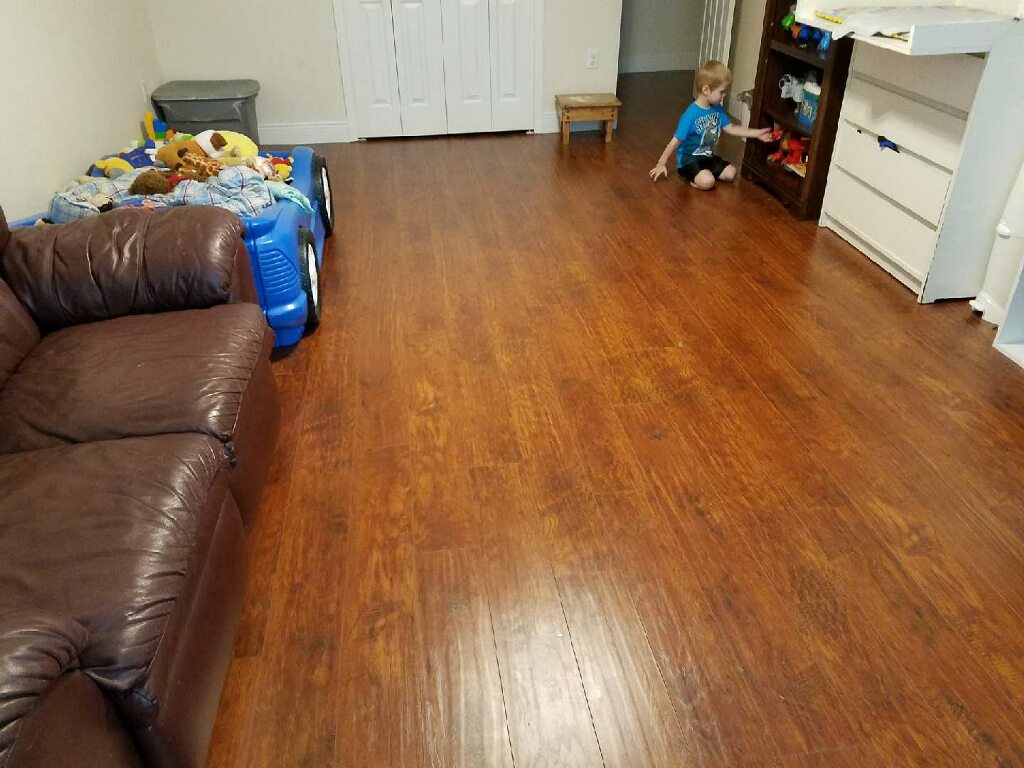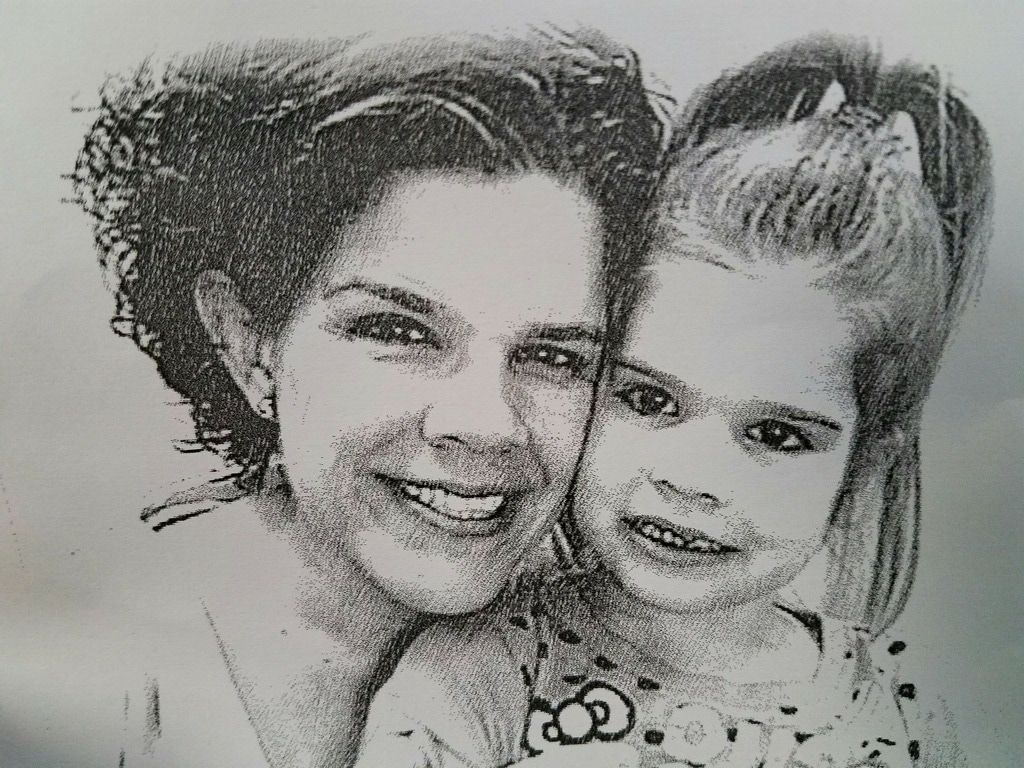 It started with a simple question. Write a synonym for each word. The words were incredibly difficult for a 2nd grader. Words like Big and Cold. But that wasn’t what was throwing my daughter into a fit of despair. She couldn’t remember what a synonym was to begin with and was feeling frustrated. “I don’t know!” she wailed. “Here,” I said. “Let me hel--” “But I don’t know!” “Let’s think ab--” “I don’t know!” “A synonym is--” “I don’t know!” she screamed louder, clearly not interested in gaining any enlightenment. “Fine,” I snapped. “Just sit there until you figure it out.” “But I don’t know!” I ignored her and continued school with her siblings. Five minutes of wailing and crying later, she looked ready to be taught. “Do you need hel--?” I tried “I don’t know!” She was back to interrupting me before I could even finish my sentence. “If you look back on pag--” “I don’t know!” “Have it your way,” I rolled my eyes. “You are not getting up until you complete that page.” “But I don’t know!” I sighed and pointed to the page. “This one. Here. Finished.” I said. She pouted, flounced about, fell out of her chair several times, dropped her pencil a few times more, yelled “I don’t know” once, and generally tried to get a reaction out of me without looking once at her book. I studiously ignored her, which was hard given that we were sitting right next to each other at the table. Fifteen minutes later, I looked up from a math lesson with her brother and realized that it had been quiet for a while. “Done!” she smiled. I checked her work. Yup. She’d managed to not only remember what a synonym was, all on her own, but she’d also correctly filled in each blank. Does this sound familiar to any of you? Do you have those days when your student is anything but ready to learn? I know I get frustrated with my kids sometimes because the answer is so obvious! “I’ve explained it to you ten different ways! Anything more and I’ll just be giving you the answer!” Well, I had a little wake up check today. We took the week off of school to catch up on all the many things that there just isn’t time for during a typical week. It always starts with decluttering bedrooms. The two little girls actually hadn’t let their room reach “Let’s burn it all down and start over” proportions, but their little brother’s room? Yikes! He’s really good at “picking up,” in that, you can send him to his room and he can get everything off the floor and onto a shelf. But organizing? He’s three and still not potty-trained, so putting things in their proper place is beyond him. Ten minutes in and I was feeling completely and utterly overwhelmed. I had pulled everything off the shelves that didn’t belong and could no longer see the floor. I had a 13 gallon trash bag stuffed to the gills. I had a billion little pieces of a hundred different toys that needed to find each other. Basically, I wanted to sit in the middle of the floor and scream, “I don’t know!” I don’t know how to bring order to this chaos. I don’t know where to start. I don’t know how to clean this up. And as I took a few deep breaths and focused on one item at a time, it hit me. I’m an adult and I get overwhelmed by a project. The magnitude of the finished task becomes so threatening that I can’t see the little steps needed to reach completion. And I want to shut down and give up. Me. An adult. Of course our kids are going to flip out about simple (to us) word problems and three sentence essays. It’s overwhelming and threatening. But if we give them a chance to work through their “I don’t knows” and figure out what the next step is, they’ll be able to accomplish anything they set their minds to. Including cleaning their own rooms.
3 Comments
 My two eldest daughters are taking responsibility for the raising and training of our puppy. Most of the time they love it. He’s sweet and cuddly and fun to be with. But he is also a puppy. Which means that he chews everything and seems to interact with the world with his teeth, or by jumping on people. Po was the top of his puppy class which was a great source of pride for my daughters. He’s a Goldendoodle, so he’s pretty smart. He catches on quickly and wants to please. Sometimes. They graduated to Beginner Obedience and Po is now in the “teenage” years. One night after dog training they came home looking very dejected. “Po was awful,” they said. “It was so embarrassing.” My mind instantly jumped to images of our dog snarling and attacking other dogs. Did he bite someone? Are we going to get sued? Oh, no. “He wasn’t paying attention in class.” I start to laugh, take one look at their sad faces, try to get serious, and then just lose it. Yes, I realize that having your dog jumping everywhere in class and not listening or following directions is very annoying, but it is also so comically ironic! “Welcome to my world!” I chortle. They don’t get it. I take the opportunity to sit down with them and teach them an important parenting life lesson: Your self-worth as a parent does not come from your children’s behavior. Let me say that again. Your self-worth as a parent does not come from your children’s behavior. I didn’t know this with my first child, or even my second or third. My first three kids were pretty compliant and obedient children. They didn’t bite people, or throw toys, or get kicked out of church nursery. I thought it was all me. I would look at other parents, the ones whose children were melting down in the grocery checkout line and just shake my head. Oh, that poor mother. If only she was a better parent and more consistent with her discipline. Ha! Then along came my fourth. My sweet, snuggly, loving little boy who can drive anyone up the wall in two minutes. I’d done all the same things with him, but I was getting different results. I even went through a period of time during his terrible twos where I wondered if I could ever really love this kid. I’d pick him up from nursery inwardly cringing and waiting to hear what horrible thing he’d done that week. I was embarrassed. I felt like people were judging me and thinking I was a bad mom. And that’s when it hit me. Children are people too. They are individuals. They are unique. And they are responsible for their own actions. My responsibility as a parent is to train them, correct them, and point them to Jesus. My responsibility is NOT to make them perfect. Letting go of that was such a relief. Sure my kid might be screaming in the checkout aisle, but that’s no reason for me to be embarrassed! I’m going to correct him, tell him to stop, give him consequences for his actions, remove him as quickly from the situation as possible, but I’m not going to feel like a failure as a parent. I’m doing my job. He’s the one who is choosing how to respond. And that’s what I tried to tell my girls. Their job is to remain calm and assertive and correct their puppy. But Po is a puppy and he’s going to act like a puppy. He’s going to be distracted, and disobey, and try to see exactly where that boundary is. That doesn’t mean that they are bad puppy parents, it just means that they have a puppy. And they need to stay calm and not allow their self-worth to be tied up with how their “child” is behaving. I can’t make my kids be anything. I can only be faithful to do what God has called me to do. My self-worth comes from Him alone, not from any behavior—good or bad—that my children exhibit. (ps. You know our family likes making music videos. Here is one that my girls made about Po. We really love him!) |
Erin Evans
You know that family that shows up to church in the 15 passenger van? The one that homeschools? Ever wondered how they make it through the day or wished you could be a fly on the wall of their house? Well, I'm inviting you in. I'm 36 and I ride herd on 8 children (oldest is 12), 3 cats, 2 bearded dragons, and one puppy. It's loud, chaotic, and imperfect. Welcome to Life in the Big House! Archives
November 2018
Categories
|



 RSS Feed
RSS Feed
